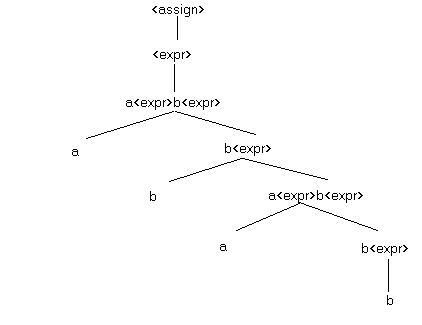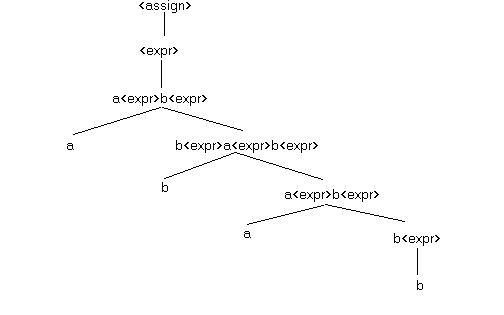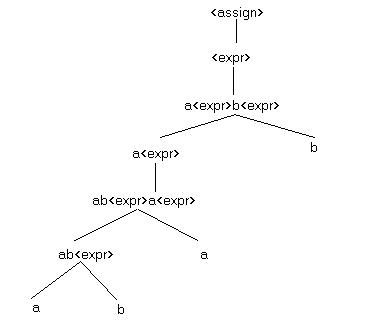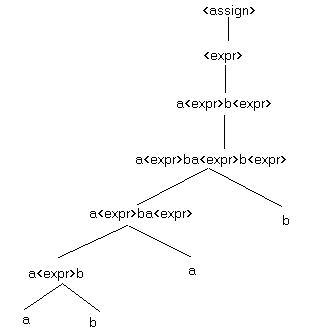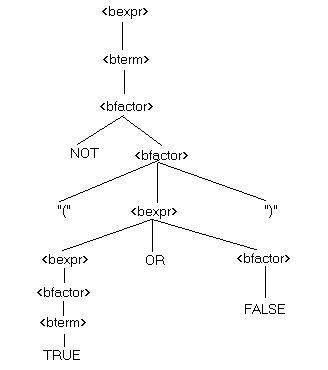
By traversing the tree, the tree generated will lead to bfactor which will generates all boolean expression.
bexpr=> bterm=> bfactor=> true
bexpr=> bterm=> bfactor=>false
bexpr=> bterm=> bfactor=> not bfactor=> not true
bexpr=> bterm=> bfactor=> not bfactor=> not false
bexpr=> bexpr or bterm=> bterm or bterm=> bfactor or bfactor=> true or false
bexpr=> bexpr and bterm=> bterm and bterm=> bfactor and bfactor=> true and false
bexpr => bterm => bfactor => not bfactor => not (bexpr) => not (bexpr or bterm)
=> not (bterm or bterm) => not (bfactor or bfactor) => not (true or false)
3. (10 points) Consider the grammar:
S ::= aSbS | bSaS | empty
Show that this grammar is ambiguous by constructing two
different leftmost derivations for the sentence abab.
Construct the corresponding rightmost derivations for abab.
Construct the corresponding parse trees for abab.
